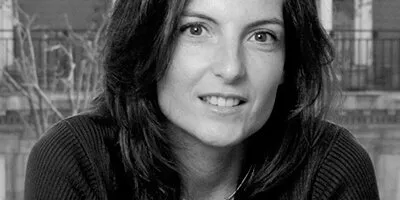
The Sustainable Development Goals (SDGs) deciphered
CSR, SRI, ESG.. There are many acronyms in the lexical field of the word "responsible"! In this interview, our expert Claire Douchy presents the SDGs, "Sustainable Development Goals", promoted by the United Nations.
Claire, we often hear you talk about SDGs. Can you define what is behind this abbreviation?
The Sustainable Development Goals were instituted by the United Nations in 2015, as a relay to the Millennium Development Goals (MDGs). These were set during the Millennium Summit in 2000, presented by Kofi Annan, then Secretary General of the United Nations, as an ambitious action plan to fight poverty. The commitment made by world leaders resulted in a challenging framework of eight goals. Subsequently, they were enriched by a wide range of practical measures to help improve the lives and prospects of those affected by poverty. In reviewing the initiative, Ban Ki Moon, the new Secretary-General of the United Nations, called the "global mobilization for the Millennium Development Goals ... the most successful anti-poverty movement in history."(1) Between 2000 and 2015, the MDGs have lifted more than a billion people out of extreme poverty, made remarkable progress in the fight against hunger, enabled more girls to go to school and protected our planet. By initiating new and innovative partnerships, by mobilizing public opinion, they have shown the extreme importance of implementing ambitious goals. Of course, while considerable progress in development has been noted, much remains to be done to ensure that development benefits everyone, while not compromising the ability of future generations to ensure their own development. This is why, in 2015, the United Nations committed itself to a roadmap for 2030 with the 17 Sustainable Development Goals. They respond to the global challenges we face, including those related to poverty, inequality, climate, environmental degradation, prosperity, peace and justice. They are interconnected and, in order not to leave anyone behind, it is important to achieve each of them and each of their targets by 2030.
The MDGs and especially the SDGs mark a break with the past because companies and the financial sphere have seized upon this framework of sustainable development objectives to consider their own contribution. There is no doubt that the rise of CSR, on all continents, in an increasingly global world, is a key factor in the awareness that sustainable development is the business of all economic actors and not just states and governments. As such, the financing needs are considerable. According to an IMF study(2) published in 2019, in low-income and emerging countries, the main SDGs in the areas of education, health, electricity, roads, water and sanitation require additional annual expenditure estimated at USD 2,600 billion until 2030. This is a real business and development opportunity for the private sector. Companies have understood this. Let's take a few examples: the Livelihoods fund, which seeks to reconcile man and nature, is a coalition of private and public players in which we find major groups concerned by the subject, including Danone, Schneider Electric and the Hermès group. Likewise, in order to specify its contribution and identify the most relevant SDGs with regard to its activities and commitments, the Veolia Group carried out a study, including a consultation of internal and external stakeholders: these are Objectives 6, 7, 9, 11 and 12(3). As a final example, our Societe Generale group has also specified its CSR ambitions, which enable it to contribute in particular to SDG No. 7 "Clean and affordable energy" through its climate ambition, or SDG No. 5 "Gender equality" through the diversity commitments it has just made(4).
The United Nations often means states and governments. How are companies also involved?
We have talked about States and companies. How can we contribute, as citizens?
By making useful savings! You will certainly find investment solutions in your bank that contribute to sustainable development: this is called Socially Responsible Investment (SRI). For several years now, financial institutions have been using the SDG framework to present their sustainable offer. At Societe Generale Private Banking we group them into three pillars: the biosphere pillar, which includes SDGs related to the preservation of the environment, the social pillar, which includes SDGs related to the balanced, peaceful and inclusive organisation of human societies, and finally, the responsible economy pillar, which includes objectives related to sustainable business models. In order to properly take into account the expectations of our clients and prospects, we have developed an online questionnaire "My Sustainable Future", which enables them to test their knowledge and identify their preferences, and the results of which can be shared with a Societe Generale Private Banking banker. The result can then be shared with a Societe Generale Private Banking banker, who will be able to present the offers that best correspond to the objectives of the client/prospect while respecting their investor profile, their knowledge, their risk appetite, their investment horizon...
Do not hesitate to fill out this questionnaire by following the link: go to the "My Sustainable Future" questionnaire.
To know more about the SDGs, go to the dedicated website.
(1) www.un.org/fr/millenniumgoals/reports/2015/pdf/rapport_2015.pdf
(2)www.imf.org/~/media/Files/Publications/SDN/2019/SDN1903.ashx
(3) https://www.veolia.com/fr/rapport-activite-integre-2017/veolia-engagement-odd-2030
Would you like to discuss this subject further with us?
This document is of an advertising nature and has no contractual value. Its content is not intended to provide an investment service. It does not constitute investment advice or a personalised recommendation on a financial product, nor does it constitute personalised insurance advice or recommendation, nor does it constitute a solicitation of any kind, nor does it constitute legal, accounting or tax advice on the part of Société Générale Private Banking.
The information contained herein is provided for information purposes only, is subject to change without prior notice, and is intended to communicate elements that may be useful in making a decision. Any information on past performance that may be reproduced does not under any circumstances guarantee future performance.
Before subscribing to any investment service, financial product or insurance product, the potential investor (i) must read all the information contained in the detailed documentation of the service or product under consideration (prospectus, regulations, articles of association, document entitled "key information for investors", term sheet, information memorandum, contractual terms and conditions, etc.), in particular that relating to the associated risks; and (ii) must consult his legal and tax advisors to assess the legal consequences and tax treatment of the product or service under consideration. His private banker is also at his disposal to provide him with further information, to determine with him whether he is eligible for the envisaged product or service which may be subject to conditions, and whether it meets his needs. Consequently, Societe Generale Private Banking cannot under any circumstances be held liable for any decision taken by an investor based solely on the information contained in this document.
This document is confidential, intended exclusively for the person to whom it is given, and may not be communicated or brought to the attention of third parties, nor may it be reproduced in whole or in part, without the prior written consent of Société Générale Private Banking. For further information, click here.





